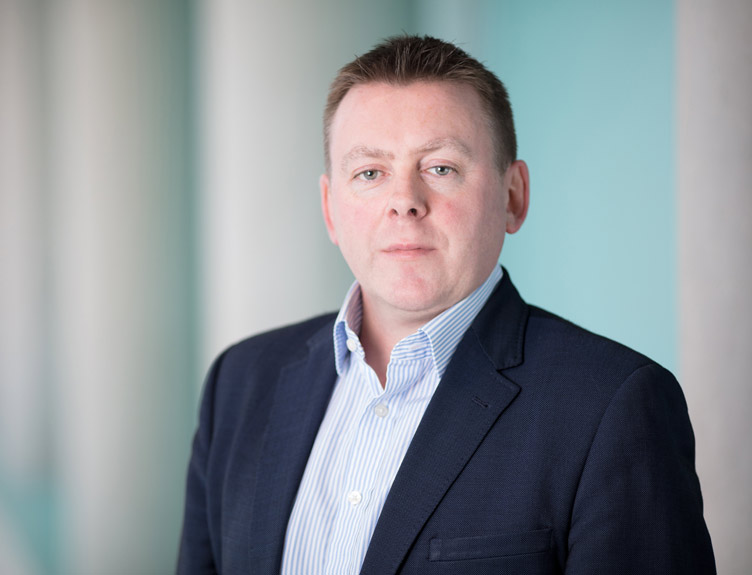RCSI professor named joint recipient of €1m NSF and SFI research grant

Fergal O’Brien, Professor of Bioengineering and Regenerative Medicine in the Department of Anatomy; Head of the Tissue Engineering Research Group; and Deputy Director of the AMBER Research Centre, has been awarded over €450,000 in research funding as part of a tri-partite US-Ireland R&D Partnership grant funded by Science Foundation Ireland (SFI), the US National Science Foundation (NSF) and Invest Northern Ireland (NI).
This funding will support RCSI’s innovative research into bone repair and regeneration, using biomaterial scaffolds functionalised for gene delivery. The collaborative award, worth a total of €1m, is split between three international groups; Prof. Fergal O’Brien in the Republic of Ireland, Prof. Helen McCarthy in QUB in Northern Ireland and Prof. Seth Donohue in the University of Massachusetts; and also involves Prof. Nicholas Dunne’s group in Dublin City University
More than two million orthopaedic procedures use bone grafts annually to repair damaged bone, at a cost of over $30 billion to global healthcare systems. There are limited supplies of bone tissue available for grafting and bone graft surgeries can cause chronic pain and other major complications such as infection and haematoma, which may require additional procedures. Recombinant (artificially-produced) proteins can be used as an alternative to grafts, but they are expensive and have potential adverse side effects. New alternatives to bone grafts for repairing large bone defects are, therefore, necessary.
This interdisciplinary tri-jurisdictional award brings together leading researchers in biomaterials, gene therapy and biomechanics, and aims to develop a novel and transformative, materials-based approach for the delivery of genetic cargo to improve the healing of large bone defects.
This project could have a transformative effect on the field of gene therapy by developing methods for the safe delivery of genetic material to enhance healing. Furthermore, this research may have a significant impact on patients and clinicians through the creation of a novel, and much-needed, genetic nano-medicine approach for healing very large bone defects, for which no satisfactory clinical solution currently exists.
Prof. O’Brien noted: “We are really pleased to have received this US-Ireland R&D Partnership grant. By partnering with leading international groups in Ireland and the United States, the team has the combined skillset to develop a transformative technology that moves beyond the state of the art which can thus have real clinical impact."



